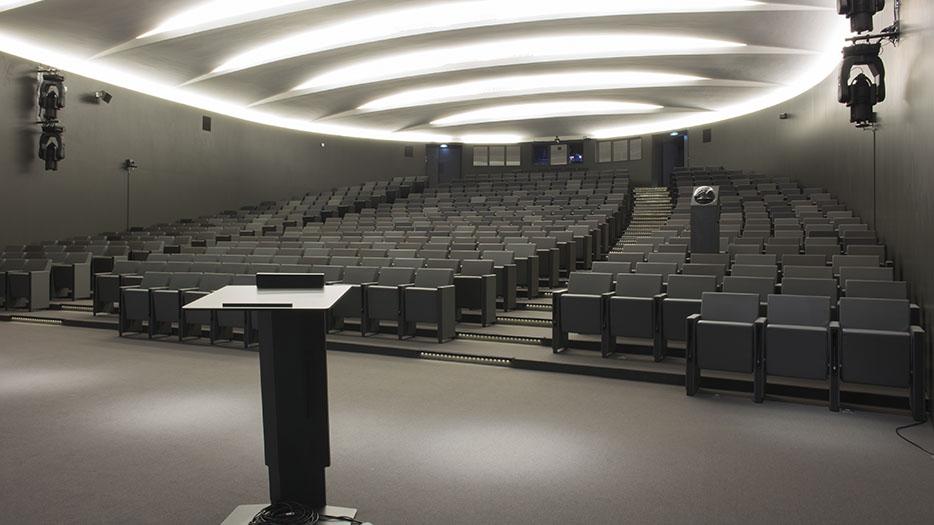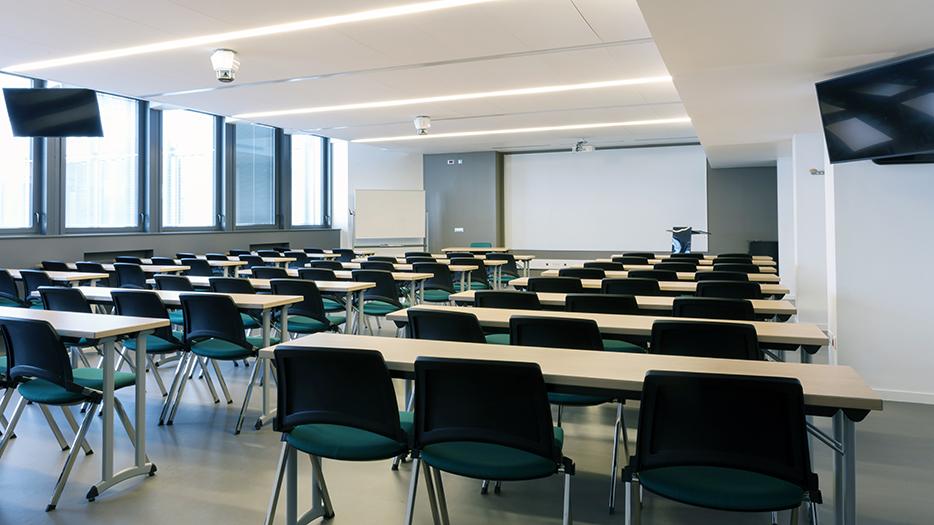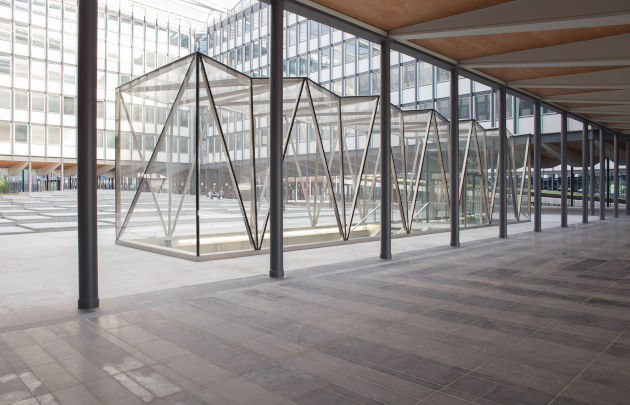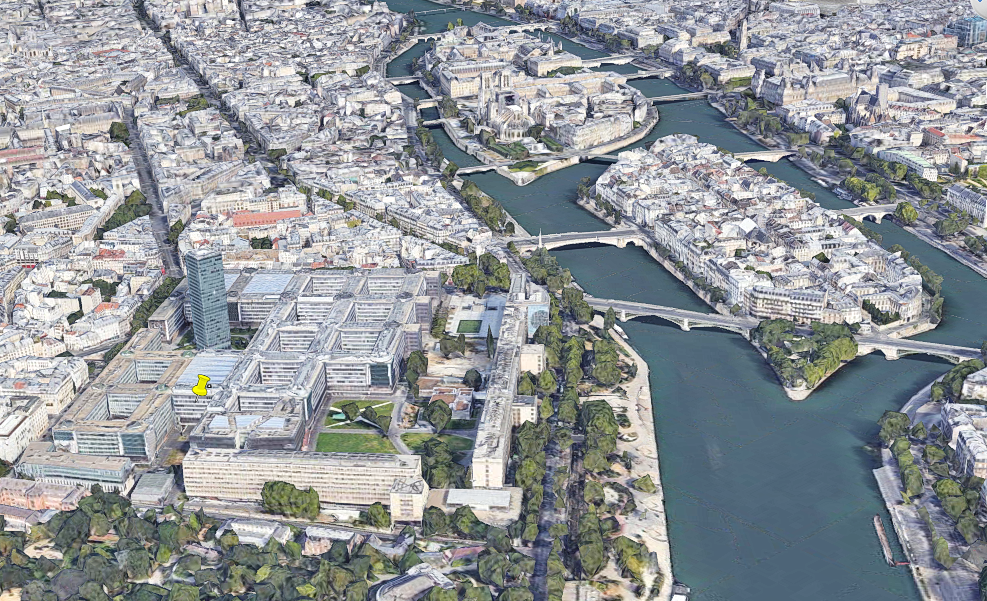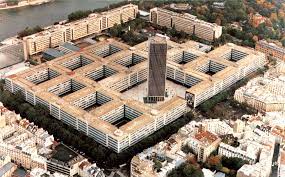The Conference gathered 520 participants (40% women), 20% of them online, from 58 countries coming from Europe (62.7%), Africa (25.3%), Asia and Oceania (7.2%) and the Americas (4.8%). 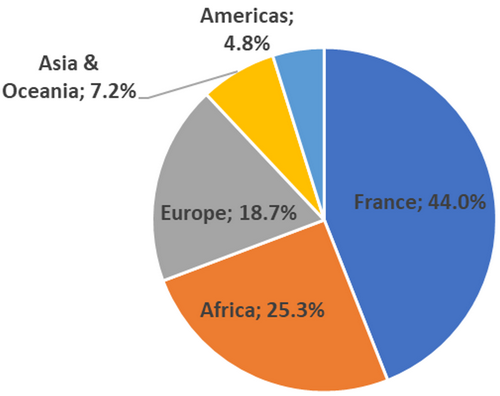 As a multi-stakeholder conference, it gathered not only groundwater specialists but also managers of public and private water utilities, decision-makers, funders, industrialists, NGOs and representatives of the civil society... 40 speakers benefited from a financial support from UNESCO or IRD for their participation.
As a multi-stakeholder conference, it gathered not only groundwater specialists but also managers of public and private water utilities, decision-makers, funders, industrialists, NGOs and representatives of the civil society... 40 speakers benefited from a financial support from UNESCO or IRD for their participation.
- 9 invited speakers (including 4 women)
- introduced the 63 sessions of the program, including:
- 31 Technical Sessions (380 oral presentations and posters)
- 20 Round Tables
- 6 Workshops
- and 4 Training Sessions
This summary was prepared based on the feedback from the working groups and the reactions expressed during the sessions.
THE FINDINGS
1 - Groundwater is invisible but plays a key role in achieving many SDGs targets by 2030. This concerns in particular:
Drinking water and hygiene (SDG6): close to consumers (through wells, boreholes), groundwater is often of good quality with positive benefits on health, but also on education, gender equality, poverty and economy (SDGs 1, 3, 4, 5, 8, 10, 16).
Food production (ODD2). They already contribute nearly 50% to irrigated agriculture and are also widely used for livestock production:
- agricultural development is possible while respecting the renewable resource, with water-saving techniques and non-polluting practices;
- there is a need for information and education on the overexploitation of groundwater due to related to agricultural uses;
- agriculture is a major factor in the degradation of groundwater quality.
The biosphere: ecosystems and biodiversity – Aquatic life (ODD14) and les ecosystems (ODD15) are largely dependent on groundwater (groundwater/river and wetland relationships).
Clean energy (ODD7): the use of underground heat through groundwater (geothermal energy) ensures link to the energy transition and the circular economy (SDG12).
2 - The knowledge of groundwater develops new knowledge and innovations:
Baasic notions/laws on the water cycle, fluid transfer, major cycles such as for Carbon.
New techniques for research, exploitation and monitoring of groundwater, which appeared simultaneously with the digitization and worldwide dissemination of knowledge.
The principles of shared governance, especially at the basin level:
- for a better consideration of the global water cycle, of groundwater/surface water connections, of the transboundary context, the coastal areas, etc;
- with knowledge and understanding of the issues/stakesholders/local level/vocal knowledge and common sense.
Development of rights and ground rules, participatory science in monitoring the awareness and water policing - taking into account the socio-anthropological and community dimension in the definition of the problems to be solved.
The holistic approach is everyone's business: hydrogeologists, technicians, managers, financiers, users, etc
- Demystify the complexity of groundwater, make it visible and understandable to all in order to achieve the SDGs
- To know and make known their functioning and their potential, improving the impact of climate change and the growth of withdrawals
- Promote integrated local water governance in articulation with the regulatory and institutional context at all scales, including transboundary level
- Implement practical, ethical and sustainable solutions to the global challenges related to water, climate change, better integrate them into IPCC studies
- Ensure inclusive development, integrate nature-based solutions
- Integrate groundwater into economic/ecosystem programs. Look for innovations at all levels (methodological, technological, societal, economic), by all actors (public and private operators, local and national authorities, civil society, etc)
- Explain the notion of time, its inclusion in operational programs and the need to be patient because of the inertia of groundwater
- Engage youth and empower them to take initiatives
Groundwater must be firmly included in the overall contribution of water to the SDGs
Act quickly to accelerate the necessary transitions, monitor and evaluate the effectiveness of actions
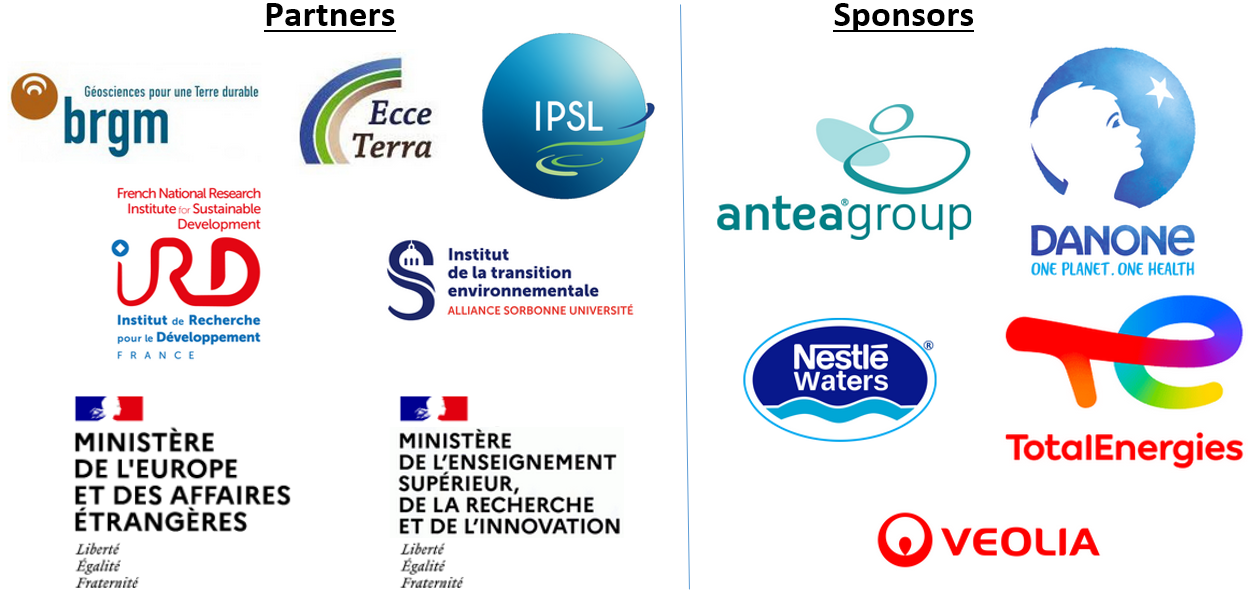
The « Agenda 2030 », the 17 « Sustainable Development Goals » (SDGs), their 169 targets and their 240 well attended indicators, multinational and multilateral roadmaps, constitute a great message of hope for the future of human societies and terrestrial ecosystems, currently facing the impacts of global change.
Within this framework, groundwater resources (GWR) have a key role to play, directly in terms of food, hygiene and health, protection and restoration of ecosystems and biodiversity … and, indirectly, for the reduction of poverty and inequalities, contribution to education and gender equality, peace.
4 place Jussieu - 75005 PARIS
- decision-makers, from the international level to local authorities, like Water Agencies, basin authorities and local structures for management and protection of groundwater...
- funding agencies and donors
- NGOs, civil society, local communities, farmers, water and sanitation companies, industries...
- groundwater resource specialists: scientists, national and local authorities, planning authorities, engineering firms, consultants...
- Examine the overall relationships between water-related SDG s, their stakeholders and groundwater
- Share knowledge, experiences, findings and good practices on GWR in sustainable development trajectories
- Elaborate recommendations to ensure the best integration of groundwater resources into the SDGs.
- A prominent locus of expression will be given to the youth : high school and University students, young researchers and professionals ...
- Invited speakers (key notes) and presentations by participants (oral communications, poster sessions)
- Round tables opened to conference participants - Innovative forms of animation and presentation (summaries produced on the basis of contributions received in advance; themes entrusted to thematic animators, prior to the conference).
COVID 19
Given the importance of the topics covered, the conference will take place regardless of the circumstances. The health situation (COVID 19) may lead to a mixed organization, combining face-to-face and distance (webconference).





